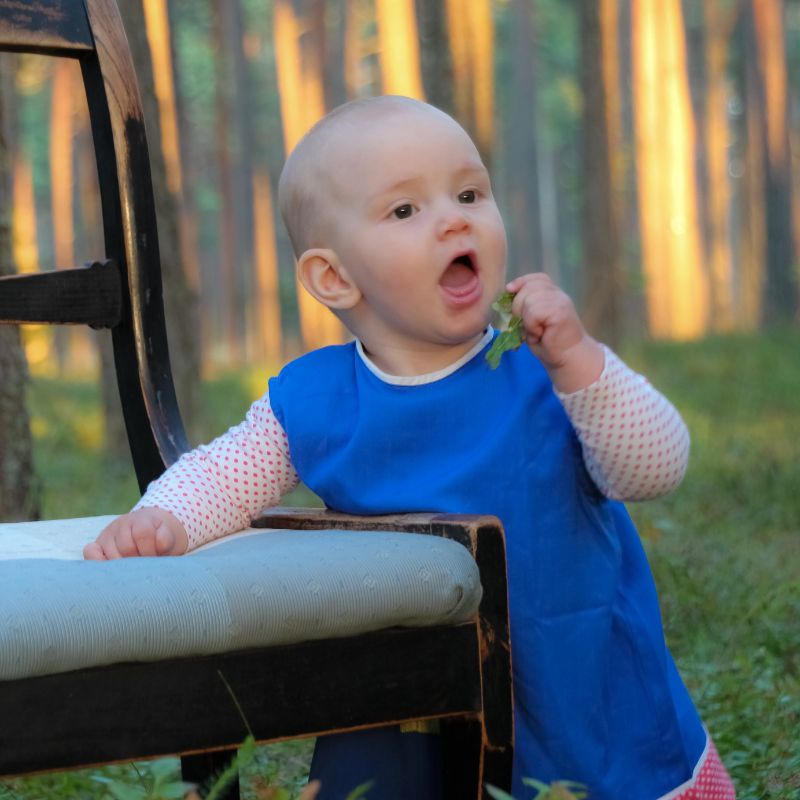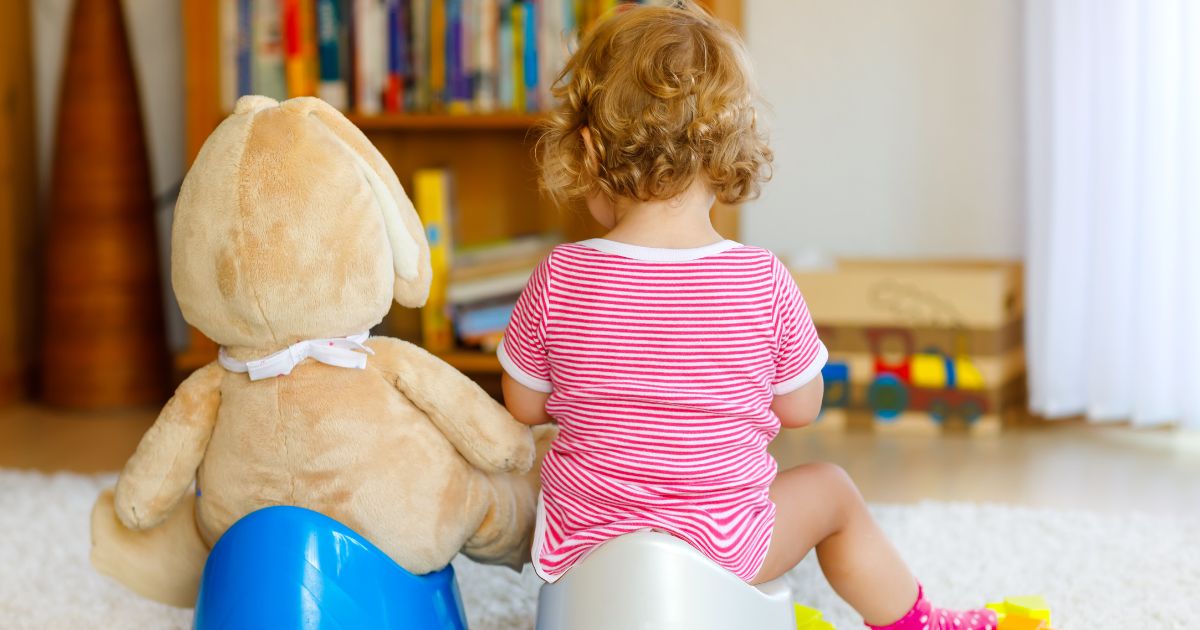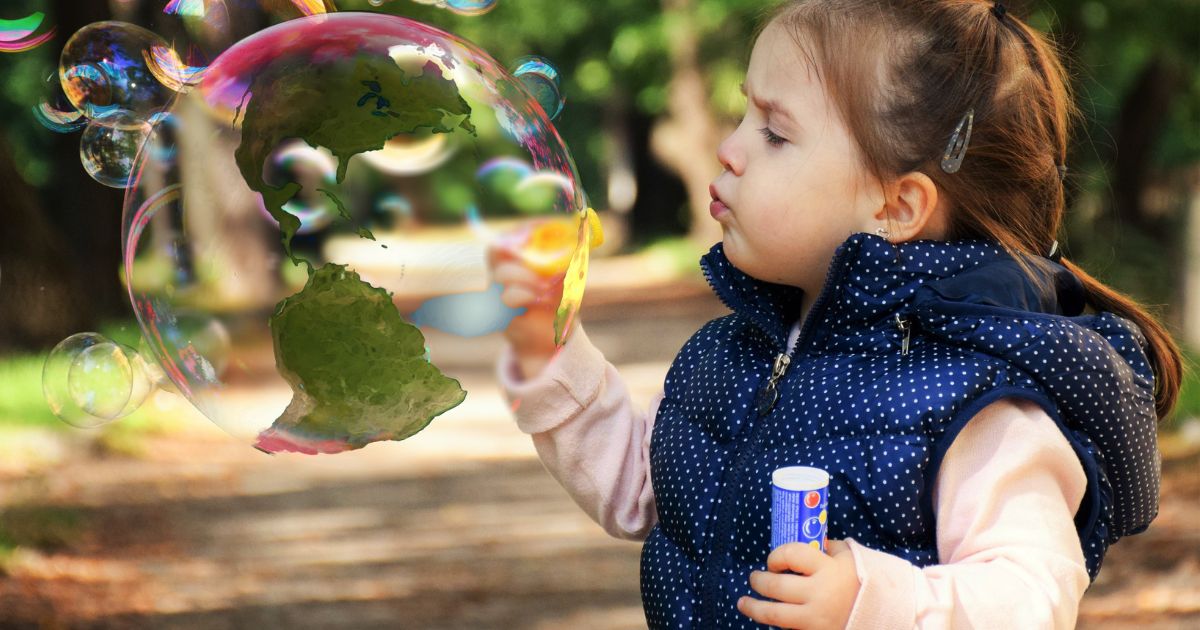
19 Month Old Toddler – All you need to know
Gross Motor Skills
Walking and Running:
19 Month Old Toddler – At 19 months, most toddlers have mastered walking and may even be running confidently. Their strides become more stable and coordinated. They may enjoy exploring the world around them on foot, so it’s essential to ensure a safe environment and watch out for potential hazards.
Climbing:
Toddlers are often eager climbers. They may try to climb onto furniture, playground equipment, or stairs. Supervision is crucial to prevent accidents, and you can provide safe opportunities for climbing, like toddler sized climbing structures.
Jumping – 19 Month Old Toddler:
Jumping is another skill that many 19 month olds start to develop. You may notice your toddler attempting small jumps, often with both feet leaving the ground simultaneously. Encourage this activity to help improve their coordination and muscle strength.
Read also Best Toddler Parenting Advice – More Effective Parenting
Balance:
Balance is improving at this stage, allowing toddlers to stand on one foot for a brief moment or walk on tiptoes. These developments contribute to their overall physical coordination.
Fine Motor Skills
Grasping and Manipulating Objects:
Fine motor skills continue to evolve. Toddlers can use their fingers to pick up small objects, feed themselves with a spoon or fork (although it may be messy), and stack blocks or toys. They may also enjoy scribbling with crayons or markers.
Building with Blocks – 19 Month Old Toddler:
Building and stacking blocks is not only a fun activity but also helps develop hand eye coordination and spatial awareness. Encourage your child’s creativity and problem solving skills by providing different sized blocks for them to play with.
Turning Pages in Books:
Many toddlers enjoy looking at picture books and may even attempt to turn pages on their own. This activity promotes fine motor skills and early literacy development.
Self-Help Skills:
Toddlers may show interest in self help skills like dressing themselves (with assistance), brushing their teeth (with supervision), and trying to use a cup or utensils independently. Encourage these efforts to foster independence.
Puzzles – 19 Month Old Toddler:
Simple puzzles with large, easy to grasp pieces can be engaging for toddlers. They can help improve hand-eye coordination, spatial reasoning, and problem solving abilities.
Art and Creativity:
Provide opportunities for your child to explore their creativity through activities like finger painting, molding clay, or playing with playdough. These activities enhance fine motor skills and artistic expression.
Language Development
Vocabulary Expansion:
By 19 months, toddlers typically have a growing vocabulary. They can understand and say more words, although their pronunciation may not be very clear. Some children may have a vocabulary of 200 or more words, while others may have fewer.
Simple Phrases – 19 Month Old Toddler:
Many toddlers start to combine two words to form simple phrases or short sentences. These phrases may include words like “more juice,” “big dog,” or “bye bye mommy.” This represents an important step towards more complex language development.
Receptive Language:
Receptive language, or the ability to understand spoken words and sentences, continues to advance. Toddlers can follow simple instructions like “Give me the ball” or “Point to the cat.” They may also respond to questions with gestures or words.
Read also Sleep Training Mistakes – Top 10 How Your Baby To Sleep Better
Non-Verbal Communication
Gestures:
Toddlers use a variety of gestures to communicate their needs and feelings. Common gestures include pointing at objects of interest, waving hello and goodbye, and nodding or shaking their head to indicate “yes” or “no.”
Facial Expressions – 19 Month Old Toddler:
Facial expressions are a significant part of non verbal communication. Your child may use smiles, frowns, and other expressions to convey their emotions, such as happiness, frustration, or curiosity.
Body Language:
Toddlers often use their bodies to communicate. For example, they may reach their arms up to be picked up, clap their hands to show excitement, or stomp their feet when they’re upset.
Eye Contact:
Maintaining eye contact with caregivers and others is an important aspect of communication. By making eye contact, toddlers can establish a connection and express their intentions or needs.
Pointing – 19 Month Old Toddler:
Pointing at objects or people of interest is a common way for toddlers to communicate what they want or what they’re curious about. Encourage this behavior by responding to their pointing and talking about the object or topic.
Emotional Expression:
Toddlers may express their emotions non verbally by hugging, kissing, or cuddling to show affection, or by pushing away or turning their head when they’re upset.
It’s essential to pay close attention to your child’s non verbal cues and gestures, as they can provide valuable insights into your child’s thoughts and feelings. Encourage and support your child’s language development by talking to them regularly, reading books together, and responding to their attempts to communicate, whether through words or non verbal signals. If you have concerns about your child’s language development, consult with a pediatrician or speech therapist for guidance and support.

Independence and Assertiveness
Seeking Independence – 19 Month Old Toddler:
At 19 months, toddlers often display a strong desire for independence. They may want to do things on their own, such as dressing themselves (with help), feeding themselves, or attempting to put on shoes.
Determination and Assertiveness:
Toddlers can be quite determined and assertive in expressing their desires and preferences. This can manifest as saying “no” to certain activities or foods, asserting their preferences for specific toys, or insisting on doing things their way.
Exploration:
Toddlers are curious and love to explore their environment. They may wander around, investigate objects, and try to understand how things work. This exploration is essential for their cognitive and emotional development.
Emotional Expression and Attachment – 19 Month Old Toddler
Range of Emotions:
Toddlers continue to experience a wide range of emotions, including joy, frustration, anger, fear, and sadness. They may express these emotions through facial expressions, body language, and vocalizations.
Temper Tantrums:
Tantrums are relatively common at this age, often triggered by frustration or not getting their way. These outbursts are a way for toddlers to express their emotions when they lack the language skills to communicate effectively. It’s important for caregivers to remain calm and provide comfort during tantrums.
Attachment to Caregivers:
Attachment to primary caregivers remains strong. Your child may seek comfort, reassurance, and a sense of security from you or other familiar adults when they’re upset or anxious.
Empathy and Sharing:
While still developing, toddlers may begin to show signs of empathy, such as comforting a crying friend or offering a toy to another child. Encourage these behaviors by modeling empathy and teaching the importance of sharing and taking turns.
Social Play – 19 Month Old Toddler:
Toddlers may engage in parallel play, where they play alongside other children without direct interaction. As their social skills develop, they may start engaging in more interactive play with peers, though it’s still common for them to be possessive of toys and reluctant to share.
Separation Anxiety:
Many toddlers experience separation anxiety when apart from their primary caregivers. This is a normal phase of development, and it typically lessens as they grow older. Providing reassurance and maintaining consistent routines can help ease separation anxiety.
Supporting your child’s social and emotional development involves creating a nurturing and responsive environment. Encourage independence within safe boundaries, validate their feelings, and provide opportunities for social interaction and emotional expression. Remember that each child is unique, so be patient and understanding as your child navigates these important developmental milestones.
Signs of Readiness – Potty Training
Physical Signs – 19 Month Old Toddler:
- Look for physical signs of readiness, such as your child showing an interest in the toilet, staying dry for longer periods during the day, or having fewer soiled diapers. These signs indicate that your child’s bladder and bowel control are developing.
Communication:
- Your child may start to communicate their needs related to potty training, such as telling you when they’ve soiled their diaper or expressing interest in using the toilet.
Imitation:
- Many toddlers imitate the actions of older siblings or adults, so if they see others using the toilet, they might be more inclined to try it themselves.
Independence:
- A growing desire for independence is common in toddlers. They may want to do things on their own, including using the toilet.
Potty Training Tips – 19 Month Old Toddler
Introduction to the Potty:
- Start by introducing your child to the potty. Let them explore it and become comfortable with its presence in the bathroom. Consider using a child sized potty chair or a potty seat that fits on top of the regular toilet.
Routine and Timing:
- Establish a consistent potty routine. Encourage your child to sit on the potty at specific times, such as after meals or before bedtime, even if they don’t need to go. This helps them become familiar with the process.
Positive Reinforcement – 19 Month Old Toddler:
- Use positive reinforcement to motivate your child. Praise and encourage them when they use the potty successfully. You can also consider using a reward system, such as stickers or small treats, for each successful attempt.
Be Patient:
- Expect accidents and be patient. Accidents are a natural part of the potty training process. Avoid scolding or showing frustration when accidents happen, as this can create negative associations with using the potty.
Offer Independence:
- Allow your child to be independent in the process. Let them flush the toilet, wash their hands, and put their clothes back on (with assistance as needed).
Consistency:
- Consistency is key to successful potty training. Stick to the routine and encourage your child to use the potty at regular intervals.
Use Training Pants – 19 Month Old Toddler:
- Consider using training pants or pull up diapers during the early stages of potty training. These are easier for your child to pull up and down on their own.
Celebrate Milestones:
- Celebrate your child’s milestones, no matter how small. Every step toward potty training success is a significant achievement.
No Pressure:
- Avoid putting pressure on your child to use the potty. Forcing the process can lead to resistance and setbacks.
Nighttime Training – 19 Month Old Toddler:
- Keep in mind that nighttime training may take longer to achieve. Also many children continue to wear diapers or training pants at night even after they’ve mastered daytime potty training.
Remember that every child is unique, and the timing of potty training can vary. Some children may be ready to start at 19 months, while others may not be ready until closer to age 3. But the key is to be attentive to your child’s signs of readiness and to create a supportive and positive environment for the potty training journey. Also patience, encouragement, and consistency are essential for success.
Read also 17 Month old baby – All you need to know

Curiosity and Problem-Solving
Curiosity:
Toddlers at 19 months are naturally curious about the world around them. So they may explore objects, textures, and sounds with enthusiasm. Also encourage their curiosity by providing a variety of age appropriate toys and activities that engage their senses.
Simple Problem-Solving – 19 Month Old Toddler:
Toddlers at this age begin to engage in basic problem solving activities. So they might enjoy activities like stacking blocks, nesting cups, or fitting shapes into corresponding holes. Also these activities help them develop spatial awareness and improve their fine motor skills.
Cause and Effect:
Toddlers are becoming more aware of cause and effect relationships. So they may push buttons to make toys light up or make sounds, understanding that their actions lead to specific outcomes.
Imitation and Learning – 19 Month Old Toddler
Imitation:
Toddlers are keen observers and often imitate the actions and behaviors of adults and older children. But they may mimic actions like talking on a pretend phone, pretending to cook, or caring for a doll. This imitation helps them learn about their social and physical world.
Language Development:
Cognitive development is closely linked to language development. Also as toddlers expand their vocabulary and communication skills, they gain a better understanding of the world and can express their needs, thoughts, and desires more effectively.
Memory and Recall:
Toddlers are developing their memory and recall abilities. So they may remember simple routines, like bedtime or mealtime sequences, and can recognize familiar people and objects. Also engage in memory building activities like reading books with repetitive phrases or playing memory games.
Exploration and Play:
Play is a primary avenue for cognitive development. Toddlers learn through play by experimenting with different materials, using their imagination, and problem solving during pretend play scenarios.
Sorting and Categorizing – 19 Month Old Toddler:
Some toddlers may begin to show an interest in sorting objects by color, shape, or size. Also this activity helps develop cognitive skills related to classification and organization.
Spatial Awareness:
Toddlers are beginning to understand concepts related to space, such as “in” and “out,” “on” and “under.” But they may enjoy activities like fitting objects into containers or stacking objects on top of each other.
Food Preferences and Eating Habits
Varied Food Preferences:
At 19 months, toddlers may have developed some food preferences. So they may show a preference for certain flavors, textures, or types of food. It’s common for toddlers to be selective eaters, so it’s important to offer a variety of foods to ensure they receive a balanced diet.
Changing Appetite – 19 Month Old Toddler:
Toddlers’ appetites can vary from day to day. Some days, they may eat a lot, while on others, they may eat very little. This fluctuation is normal and often related to growth spurts and activity levels.
Independence in Eating:
Many toddlers are eager to feed themselves and may resist being spoon fed. Encourage their independence by providing age appropriate utensils and foods that are easy to handle. Be prepared for messes, as self feeding can be messy but is an important developmental milestone.
Healthy Eating and Mealtime Tips
Balanced Diet:
Offer a balanced diet that includes a variety of foods from all food groups, including fruits, vegetables, proteins (such as lean meats, fish, and beans), dairy or dairy alternatives, and grains (preferably whole grains). Aim to provide a rainbow of colors on their plate to ensure a range of nutrients.
Portion Sizes – 19 Month Old Toddler:
Serve appropriate portion sizes for your child’s age and appetite. Pay attention to hunger cues, and avoid pressuring your child to eat more than they want.
Healthy Snacks:
Provide healthy snacks between meals, such as sliced fruits, yogurt, or whole grain crackers. Avoid offering sugary or overly processed snacks too frequently.
Hydration:
Make sure your child stays well hydrated. Water is the best choice for hydration, and you can offer it throughout the day. Limit sugary drinks like juice and soda.
Read also 18 Month old baby – All you need to know
Family Meals – 19 Month Old Toddler:
Encourage family meals whenever possible. Also eating together as a family not only provides a bonding opportunity but also sets a positive example for healthy eating habits.
Avoid Choking Hazards:
Pay close attention to the size and texture of foods to prevent choking hazards. So cut foods into small, manageable pieces, and avoid offering hard or small items that could pose a choking risk.
Be Patient:
Toddlers may be hesitant to try new foods. It can take multiple exposures to a new food before they accept it, so be patient and continue offering a variety of nutritious options.
Positive Mealtime Environment – 19 Month Old Toddler:
Create a positive and relaxed mealtime environment. So avoid pressuring your child to eat or using food as a reward or punishment. Mealtimes should be enjoyable and stress-free.
Remember that every child is different, and it’s normal for their eating habits to change over time. But if you have concerns about your child’s nutrition or eating habits, consult with a pediatrician or a registered dietitian for guidance and support. Also the goal is to foster healthy eating habits and a positive relationship with food from a young age.
Home Safety – 19 Month Old Toddler
Childproofing:
- Continue childproofing your home to create a safe environment for your toddler. So this includes securing heavy furniture to the wall to prevent tipping, using safety gates at stairs and dangerous areas, and covering electrical outlets.
Hazardous Items:
- Keep hazardous items such as cleaning products, medications, sharp objects, and small choking hazards out of your child’s reach or locked in cabinets with childproof locks.
Secure Cords and Blinds:
- Tie up or secure cords from blinds and curtains, as they can be a strangulation hazard. Consider using cordless blinds or other child safe window coverings.
Kitchen Safety:
- Supervise your child in the kitchen and use stove knob covers to prevent them from turning on burners. Also keep sharp objects and hot appliances out of reach.
Outdoor and On-the-Go Safety – 19 Month Old Toddler
Outdoor Play:
- When your child plays outside, ensure that the play area is safe and free from hazards. So check for sharp objects, ensure fences are secure, and supervise your child at all times.
Car Safety:
- Always use an age appropriate car seat or booster seat when traveling with your child in a car. Also ensure it’s installed correctly, and follow local car seat laws and guidelines.
Sun Protection:
- Protect your child from the sun by using sunscreen, hats, and lightweight clothing with long sleeves and pants. Limit sun exposure during peak hours, and provide plenty of water to stay hydrated.
Water Safety – 19 Month Old Toddler:
- If you have a pool or access to bodies of water, ensure it’s securely fenced with a self latching gate. Never leave your child unattended near water, and consider enrolling them in swim lessons.
Playground Safety:
- When visiting playgrounds, choose age appropriate equipment and supervise your child closely. So look for playgrounds with soft surfaces like mulch, sand, or rubber mats to cushion falls.
Stranger Danger:
- Teach your child about stranger danger and the importance of not talking to or going with strangers. Develop a safety plan with your child in case they get lost in a public place.
First Aid and Emergency Contacts:
- Familiarize yourself with basic first aid for common injuries. So keep a well stocked first aid kit at home and in your car. Also make sure you have important emergency numbers, including your pediatrician and local poison control center, readily accessible.
It’s crucial to be proactive in ensuring your child’s safety both at home and when you’re on the go. So regularly assess your environment for potential hazards and teach your child about safety rules and procedures. Also supervision and education are key elements in keeping your child safe as they continue to explore the world around them.
Read also 16 Month old baby – All you need to know
Well-Child Check-Ups – 19 Month Old Toddler
Regular Check-Ups:
- Continue scheduling well child check ups with your pediatrician or healthcare provider. These visits typically occur at specific intervals, such as every few months, to monitor your child’s growth, development, and overall health.
Vaccinations – 19 Month Old Toddler:
- Ensure that your child is up to date with vaccinations according to the recommended immunization schedule. Also vaccinations help protect your child from preventable diseases.
Developmental Screening:
- During well child visits, your healthcare provider may conduct developmental screenings to assess your child’s milestones and identify any developmental delays. So early intervention is crucial if any concerns arise.

Health and Safety at Home – 19 Month Old Toddler
Oral Health:
- Begin a dental care routine by brushing your child’s teeth with a soft toothbrush and a small amount of fluoride toothpaste. Regular dental check ups should also be part of your child’s healthcare routine.
Medication Safety – 19 Month Old Toddler:
- Store medications and vitamins out of reach of your child in a secure, childproof container. So always administer medications as prescribed by a healthcare provider.
Sleep Safety:
- Ensure your child sleeps in a safe sleep environment. But this includes placing them on their back to sleep, using a firm and flat mattress, and avoiding pillows, stuffed animals, or heavy blankets in the crib.
Nutrition – 19 Month Old Toddler:
- Continue providing a balanced diet to support your child’s growth and development. Also discuss any feeding concerns or dietary questions with your pediatrician.
Hydration – 19 Month Old Toddler:
- Encourage your child to drink plenty of water throughout the day to stay hydrated, especially in warm weather or during illness.
Home Safety:
- Maintain a safe home environment by childproofing, securing heavy furniture, and keeping small objects or choking hazards out of reach. But regularly check for potential safety hazards.
Sibling and Pet Safety – 19 Month Old Toddler:
- If you have older children or pets, teach them how to interact safely with the toddler. So always supervise their interactions to prevent accidents.
Developmental and Behavioral Concerns
Speech and Language:
- If you have concerns about your child’s speech and language development, discuss them with your pediatrician. Also early intervention with a speech therapist may be recommended if necessary.
Behavioral Issues – 19 Month Old Toddler:
- Address behavioral concerns or challenges with your child’s healthcare provider. They can offer guidance on managing common toddler behaviors, such as tantrums and separation anxiety.
Developmental Delays:
- If you suspect or are informed of any developmental delays, work closely with your healthcare provider to access early intervention services or additional evaluations as needed.
Regular healthcare visits, a safe home environment, and attention to your child’s overall well being are essential for promoting their health and development. But don’t hesitate to reach out to your pediatrician for guidance or if you have any concerns about your child’s health or development. Also early intervention and regular preventive care play a crucial role in ensuring your child’s health and well being.
Conclusion – 19 Month Old Toddler
In conclusion, caring for a 19 month old child involves addressing various aspects of their development, safety, health, and independence. Also at this age, toddlers are undergoing significant physical, emotional, cognitive, and social changes. So it’s important for parents and caregivers to provide a nurturing and supportive environment to facilitate their growth and well being.
Physical Development: Toddlers are becoming more mobile, improving their gross and fine motor skills. Also exploring the world around them with curiosity. So encouraging safe physical activities and providing age-appropriate toys can support their development.
Communication: Language skills are expanding, with toddlers developing vocabulary and starting to form simple phrases. Paying attention to both verbal and non verbal cues is crucial for effective communication.
Social and Emotional Development: Toddlers are asserting their independence, displaying determination, and exploring their emotions. Also nurturing their social interactions and offering guidance in managing their emotions helps them build strong foundations for social and emotional well being.
Cognitive Development: Curiosity drives toddlers to explore and learn about their surroundings. So they engage in problem solving activities and imitate the behaviors of adults and peers, making play a valuable tool for cognitive growth.
Feeding: Introducing a balanced diet, encouraging self-feeding, and maintaining a positive mealtime environment are essential for fostering healthy eating habits.
Safety: Ensuring a safe home environment, practicing outdoor and on the go safety measures. Also educating your child about potential hazards are paramount for their well being.
Healthcare: Regular well child check ups, vaccinations, and addressing developmental or health concerns early on are key components of healthcare for a 19 month old child.
Potty Training: Recognizing signs of readiness, introducing the potty, establishing routines. So maintaining a patient and positive approach are crucial for successful potty training.
Read also – Business Compiler

[…] 19 Month Old Toddler – All you need to know […]